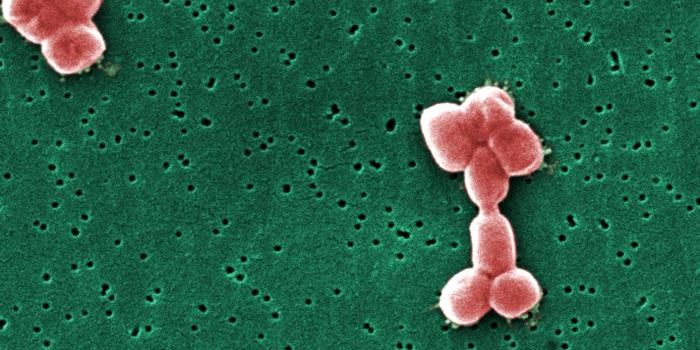Health & Medicine
New Program for Advances in Prosthetic Legs
JAN 27, 2014 12:00 AM PST
Share
New Biofuel from Yeast and Sugar
 Biofuels offer a reasonable alternative to conventional fuels, and there are many research paths vying for a process that can achieve economical large-scale production. A research group from the Chemical Engineering Department at the University of Texas has created a new method of renewable biofuel production that uses standard table sugar and specially engineered yeast cells. This process, described in the January 20th issue of Nature Communications, produces a biofuel similar to soybean-oil based biodiesel, and does so with high conversion efficiency.
Biofuels offer a reasonable alternative to conventional fuels, and there are many research paths vying for a process that can achieve economical large-scale production. A research group from the Chemical Engineering Department at the University of Texas has created a new method of renewable biofuel production that uses standard table sugar and specially engineered yeast cells. This process, described in the January 20th issue of Nature Communications, produces a biofuel similar to soybean-oil based biodiesel, and does so with high conversion efficiency.Yeast cell based oils have an advantage over soybean based oils in that the modified yeast cells can be grown in any location and are easier to alter genetically compared to other biofuel sources. They also do not compete for precious domestic land resources.
The yeast used in this process is a carefully engineered variation of Yarrowia lipolytica, a non-conventional yeast known for efficient bio-catalysis. In a painstaking process, the research team genetically modified the structure by manipulating genes that control lipid production, and discovered a unique set of culturing conditions that does not rely on nitrogen starvation for efficient lipid production. This makes the process more attractive for commercial manufacturing.
The lipids that are formed are not just suitable for conversion into biodiesel. They can replace many standard petroleum-based building block chemicals-with applications ranging from plastics to fuels to additives, and even nutritional supplements.
The yeast is extremely efficient at converting table sugar into lipids through a fermentation process. These cells were able to convert around 90% of the cell mass into usable lipids. Previous attempts with yeast-based biofuel production were only able to achieve 50-80% lipid content, and did not produce them from the sugar directly.
While this process is projected to be more environmentally friendly, it still has challenges from a global perspective. Using sugar as a feedstock will likely have a distorting effect on the sugar market just as ethanol production has had on the corn market. Biofuel methods that use non-food feedstocks like switchgrass (so-called "second generation biofuels") would be preferable, but at this point, the efficiencies and economics of second-generation biofuels do not compare to commercial processes or to the University of Texas approach.
Also, sugar cane and sugar beet fields can cause environmental concerns in other countries-as in Brazil, where expansion of sugar cane fields are coming at the expense of the rain forest. However, depending on the assumptions made for the materials this biofuels would replace, such as petroleum products and ethanol-based fuels, it can be argued that the University of Texas process is an overall step forward in the greening of fuel production.
Given the process advantages, the reasonable feasibility of scaling to high-level manufacturing, and the growing biofuel market (anticipated to be $185.3 billion by 2021), the University of Texas has applied for a patent for this process. Assuming they find industrial partners to bring this fuel to reality, in a decade or so you could find this material involved in everything, from the fuel in your car to the nylon in your clothing.
You May Also Like
Loading Comments...








